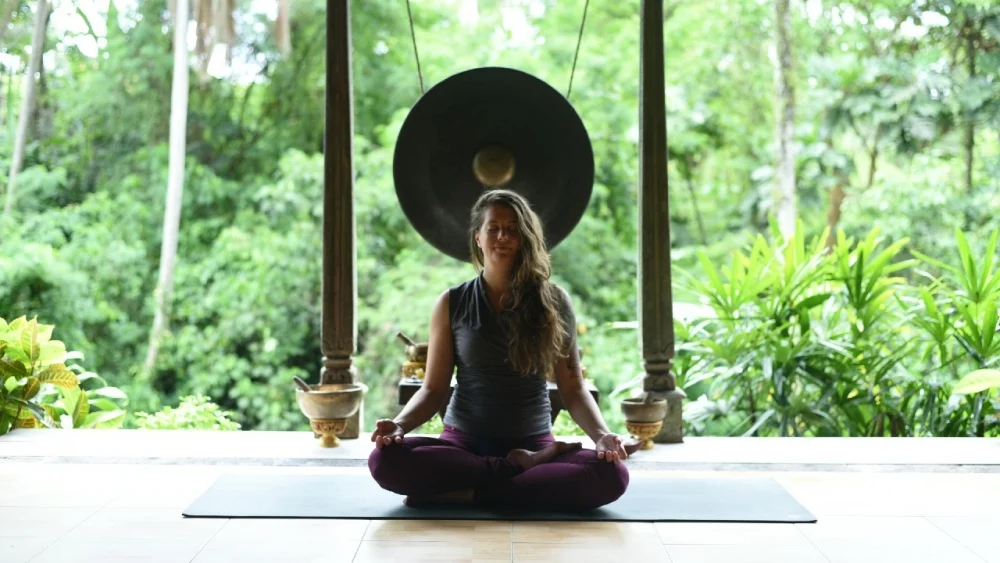Ayurveda is a holistic healing system that originated in ancient India. It focuses on achieving balance and harmony within the mind, body, and spirit. Ayurveda believes that each individual has a unique constitution made up of three doshas: Vata, Pitta, and Kapha. By understanding one’s dosha and following Ayurvedic practices such as daily routines, diet and nutrition, herbs and remedies, and body therapies, one can achieve inner harmony and overall well-being.
Brief Introduction to Ayurveda
Ayurveda is an ancient healing system that originated in India. It is based on the belief that optimal health and well-being can be achieved by harmonizing the mind, body, and spirit. Ayurveda emphasizes the importance of understanding our unique constitution, or dosha, and using personalized practices to maintain balance. By following Ayurvedic principles, you can achieve inner harmony and improve your overall quality of life.
The Three Doshas: Vata, Pitta, and Kapha

The three doshas, Vata, Pitta, and Kapha, are fundamental energies in Ayurveda that influence our physical and mental characteristics. Understanding your dominant dosha can help you tailor your lifestyle and practices for balance. Vata is associated with movement, Pitta with digestion and metabolism, and Kapha with stability. By identifying and balancing your dosha, you can maintain optimal well-being.
Ayurvedic Daily Routines
Ayurvedic daily routines, known as Dinacharya, are essential for maintaining balance and promoting well-being. Start your day by waking up early and practicing self-care rituals, such as tongue scraping and oil pulling. Follow a consistent eating schedule and prioritize meals that are cooked fresh and easily digestible. Engage in regular exercise, meditation, and relaxation techniques to support overall health. Remember to get enough sleep and establish a bedtime routine to promote restful restorative sleep. By incorporating these Ayurvedic daily routines into your life, you can create a foundation for balance and harmony.
Dinacharya: Daily Ayurvedic Practices
A Dinacharya is a set of daily Ayurvedic practices that help promote balance and well-being. Start your day by waking up early and performing self-care rituals like tongue scraping and oil pulling to cleanse your body. Follow a consistent eating schedule, prioritize freshly cooked meals, and make time for regular exercise. Practice meditation and relaxation techniques to support your overall health. Don’t forget to establish a regular bedtime routine to ensure restful sleep. Incorporate these Ayurvedic practices into your daily routine for optimal harmony and vitality.
Ritucharya: Seasonal Ayurvedic Practices

B Ritucharya: Seasonal Ayurvedic Practices:
In Ayurveda, seasonal changes can have a significant impact on our health and well-being. Ritucharya refers to the Ayurvedic practices that are specifically recommended for each season. By aligning our lifestyle and activities with the natural rhythms of the seasons, we can maintain balance and promote optimal health. These practices include adjusting our diet, exercise routine, and daily self-care practices to suit the characteristics of each season. Following Ritucharya helps us stay in harmony with nature and supports our overall well-being.
Ayurvedic Diet and Nutrition
Ayurvedic Diet and Nutrition are based on the principles of balancing the three doshas – Vata, Pitta, and Kapha. Each dosha has specific dietary recommendations to maintain balance and promote optimal health. You can achieve this by choosing foods that are suitable for your dosha type, incorporating fresh and seasonal fruits and vegetables, and avoiding processed foods. Also, practicing mindful eating and following a regular eating routine can further enhance the benefits of Ayurvedic diet and nutrition.
Principles of Ayurvedic Nutrition
In Ayurvedic nutrition, the focus is on maintaining balance and harmony in the body. Here are some key principles to follow:
- Eat according to your dosha: Choose foods that help balance your specific dosha (Vata, Pitta, or Kapha) to promote optimal health.
- Emphasize fresh and seasonal foods: Include plenty of fresh fruits, vegetables, whole grains, and herbs in your diet.
- Mindful eating: Pay attention to the taste, texture, and aroma of your food, and chew it thoroughly to aid digestion.
- Avoid processed foods: Opt for natural, unprocessed foods to minimize toxins in your body.
- Follow a regular eating routine: Eat your meals at the same time every day to support healthy digestion and metabolism.
By following these principles, you can nourish your body and achieve balance in your overall well-being.
Balancing the Doshas through Diet
To balance the doshas through your diet, it’s important to understand which foods are best for your specific dosha. For Vata, focus on warm, cooked foods and avoid cold or raw foods. Pitta benefits from cooling, hydrating foods like fresh fruits and vegetables. Kapha should opt for light, spicy, and stimulating foods to counterbalance their natural tendency for heaviness. By incorporating these dietary guidelines, you can promote balance and harmony within your doshas.
Ayurvedic Herbs and Remedies
Ayurvedic Herbs and Remedies have been used for centuries to promote health and well-being. Some common herbs used in Ayurveda include turmeric, ginger, ashwagandha, and holy basil. These herbs have various benefits such as relieving inflammation, boosting immunity, and reducing stress. Ayurvedic remedies may include herbal preparations, oils, and teas that are tailored to balance the specific doshas. Incorporating these herbs and remedies into your daily routine can support your overall health and help restore balance to your mind, body, and spirit.
Ayurvedic Remedies for Common Ailments

When it comes to common ailments like headaches, indigestion, or cold and flu symptoms, Ayurveda offers natural remedies that can help alleviate discomfort. For example, drinking ginger tea can soothe a sore throat, while using eucalyptus oil in a steam inhalation can provide relief from nasal congestion. Additionally, herbal supplements like ashwagandha and turmeric can help boost the immune system and reduce inflammation. Remember to consult with an Ayurvedic practitioner before trying any remedies to ensure they are the right fit for your specific condition.
Ayurvedic Body Therapies
Ayurvedic Body Therapies are an integral part of achieving inner harmony. One such therapy is Abhyanga, a full-body massage using warm oils that nourish the body and promote relaxation. Another therapy is Shirodhara, where a steady stream of warm oil is poured onto the forehead, calming the mind and balancing the nervous system. These therapies not only provide physical benefits but also enhance overall well-being.
Abhyanga: Ayurvedic Massage

Abhyanga is an Ayurvedic body therapy that involves a full-body massage using warm oils. This therapeutic massage helps nourish the body, improve circulation, and promote relaxation. The warm oils penetrate deep into the tissues, releasing tension and stimulating the lymphatic system. Abhyanga also helps balance the doshas, allowing for a sense of balance and overall well-being. Incorporating this ancient practice into your daily routine can help you achieve inner harmony and a deeper connection with your body.
Shirodhara: The Third Eye Oil Treatment
Shirodhara is a unique Ayurvedic therapy that involves a continuous stream of warm oil poured gently onto the “third eye” or the middle of the forehead. This treatment helps to calm the mind, relieve stress, and balance the nervous system. The warm oil flow stimulates the ajna chakra (third eye), promoting clarity, intuition, and deep relaxation. Shirodhara is a deeply rejuvenating practice that can help you achieve inner harmony and tranquility.
Achieving Inner Harmony with Ayurveda
To achieve inner harmony with Ayurveda, it is important to practice mindfulness and meditation. Taking time each day to quiet the mind and connect with your breath can help reduce stress, improve focus, and restore balance. Additionally, incorporating Ayurvedic lifestyle tips such as proper sleep, regular exercise, and maintaining a balanced diet can contribute to overall well-being and inner harmony. Remember to listen to your body and prioritize self-care to achieve a sense of balance and peace.
Practicing Mindfulness and Meditation
To achieve inner harmony with Ayurveda, make mindfulness and meditation a part of your daily routine. Set aside a few minutes each day to quiet your mind, focus on your breath, and bring awareness to the present moment. By doing so, you can reduce stress, improve concentration, and cultivate a sense of calm and balance in your mind, body, and spirit.
Ayurvedic Lifestyle Tips for Balancing Mind and Spirit
To achieve inner harmony with Ayurveda, incorporate the following lifestyle tips into your daily routine:
- Maintain a regular sleep schedule to ensure proper rest and rejuvenation.
- Engage in regular exercise, such as yoga or walking, to keep your body active and energized.
- Practice stress management techniques, such as deep breathing or journaling, to reduce stress levels.
- Spend time in nature to reconnect with the healing energy of the earth.
- Cultivate healthy relationships and surround yourself with positive influences.
- Practice gratitude and mindfulness to stay present and appreciate the beauty of each moment.
By incorporating these Ayurvedic lifestyle tips, you can achieve balance and harmony in your mind, body, and spirit.

